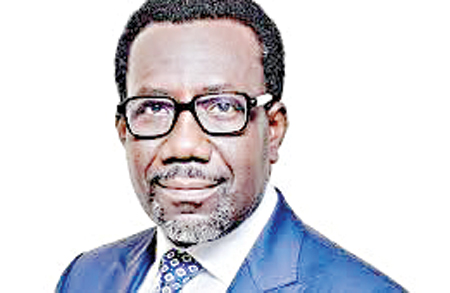Insurance policies provide a safety net against life’s uncertainties, helping policyholders protect what matters most to them as they offer financial protection, ensuring that unexpected events do not cause long-term financial hardships, writes JOSEPH INOKOTONG.
Several types of insurance policies can be beneficial for personal and asset protection. In deciding which policy to buy, certain factors must be considered.
Some are uncommon, and choosing the right type of insurance will depend on one’s goals and financial situation.
For instance, there is an umbrella policy, which is liability insurance that provides additional coverage over the policyholder’s current policy limits. If damages exceed the limits of a policyholder’s property insurance (e.g., home or auto), the umbrella policy will provide additional liability coverage, up to policy limits. This type of insurance most benefits those with sizeable assets, which could be subject to seizure.
Other important things to consider are: Health Insurance which covers medical expenses, such as doctor visits, hospital stays, and prescription drugs. It can help protect policyholders from high medical costs and ensure that they receive necessary care.
Motor vehicle Insurance is another type that provides coverage for damages and injuries resulting from car accidents, as well as theft and vandalism. It is often required by law and can help protect policyholders’ finances if they are involved in an accident.
Homeowner’s/Renter’s Insurance covers damages or losses to the home or personal belongings, as well as liability for accidents that occur on the property. It can provide financial protection and peace of mind for homeowners and renters.
Life Insurance on the other hand provides financial support to loved ones in the event of death. It can help cover expenses like funeral costs, outstanding debts, and ongoing living expenses for the family.
Disability Insurance provides income replacement if a policyholder becomes unable to work due to illness or injury. It can help ensure the availability of a source of income if the victim is unable to work for an extended period of time.
Experts say these categories of insurance policies are important because they provide financial protection and peace of mind in various aspects of life.
Health Insurance, for instance, is important because healthcare costs can be unpredictably high, and with health insurance, a policyholder is protected from high medical bills, ensuring that the insured gets the necessary healthcare without running into financial troubles.
For Auto Insurance, besides being legally required in most places, it is crucial as accidents and damages to vehicles can be costly. Insurance not only covers those expenses but also any damages that might be caused to other vehicles or property.
Homeowner’s/Renter’s Insurance, the home and personal belongings are valuable assets that need protection from unexpected damages, theft, or accidents. Insurance coverage can help replace or repair the insured home or belongings without having to pay out of pocket.
Life Insurance: It protects the loved ones financially after a policyholder’s passing. It ensures that expenses like funeral costs, outstanding debts, and ongoing living expenses for the family are taken care of.
Disability Insurance: If one becomes disabled and cannot work, disability insurance provides a source of income. This way, those involved can still maintain their standard of living and pay for expenses despite the inability to earn their regular income.
These insurance policies provide a safety net against life’s uncertainties, helping policyholders to protect what matters most to them. They offer financial protection, ensuring that unexpected events do not cause long-term financial hardships.
Insurance covers a broad topic that entails protections of homes, cars, boats, personal health and life itself. It is designed in such a manner to protect against financial loss resulting from unforeseen circumstances by sharing or pooling the risk of loss with other policyholders.
Its importance in everyday life cannot be over-emphasised due to this. Lisa Smith lists five insurance policies that include the ones enumerated earlier, which everyone should have. To make it comprehensive and relevant to the changing dynamics of the world, Eric Estevez added more value to them via a review.
The experts say an insurance policy can protect one from the hazards of normal life, floods, fires, car accidents and life-threatening illnesses, and stressed that no one can stop disasters from happening, but a good insurance policy can provide financial coverage for the unexpected expenses.
Protecting one’s most important assets is a vital step in creating a solid personal financial plan, and the right insurance policies will go a long way to helping safeguard an insured earning power and possessions.
A potential policyholder should choose a disability policy that provides enough coverage to enable him to enjoy his/her current lifestyle even if it is no longer feasible to continue working. To protect the people that are financially dependent on others, life insurance should be high on the list of required insurance policies. This is imperative because the soaring cost of medical care is reason enough to make health insurance a necessity.
Similarly, replacing one’s home is an expensive proposition. Having the right homeowner’s insurance can make the process less difficult. Renters’ insurance offers peace of mind for renters in the event their personal property is damaged due to a covered loss.
The prospect of long-term disability (LTD) is so frightening that some people choose to ignore it. While everyone thinks that “nothing will happen to me,” relying on hope to protect one’s future earning power is not a good idea. Instead, choosing a disability policy that provides enough coverage to enjoy the current lifestyle even if the person can no longer continue working is more desirable.
Long-term disability provides a monetary benefit equal to a portion of the insured’s salary for covered disabilities. It typically begins when short-term disability ends. To receive benefits, the disability must have occurred after the policy’s issuance and then, typically after a waiting period. Medical information, often confirmed by a physician, must be provided to the insurer for consideration.
Most long-term disability insurance policies categorise disabilities as own occupation or any occupation.
Smith explained that own occupation means the insured, due to disability, is unable to perform the regular job or a similar job. Any occupation means the insured, due to disability, is unable to perform any job for which he is qualified.
Similar to short and long-term disability insurance, workers’ compensation or workers comp, pays a monetary benefit to workers who become injured or disabled at work or while performing their jobs. Many countries require employers to carry workers’ compensation insurance for their employees. In exchange, employees may not sue their employer for negligence.
Smith explained further that “While long-term disability insurance and workers’ compensation insurance both pay for disabilities, long-term disability insurance is not limited to disabilities or injuries occurring at work or while working.”
Smith and Estevez while espousing on life insurance, stated that “Life insurance protects the people that are financially dependent on you. If your parents, spouse, children, or other loved ones would face financial hardship if you died, life insurance should be high on your list of required insurance policies.
“Think about how much you earn each year (and the number of years you plan to remain employed) and purchase a policy to replace that income in the event of your untimely demise. Factor in the cost of burial too, as the unexpected cost is a burden for many families.”
Life is full of surprises and the unexpected do happen unannounced. To avoid singing had I known, the logical thing to do is to purchase life insurance no matter the situation.
A whole life insurance policy is a permanent life insurance policy in which death benefits are paid upon the death of an insured. The whole life policy remains in force for the life of the insured as long as premiums are up-to-date. In addition to death benefits, whole life policies build cash value, which can be accessed during the insured’s lifetime.
On the other hand, experts say a universal life (UL) insurance policy is permanent life insurance that allows the policyholder to invest their cash value in a separate account, which features funds tied to the stock market. It is a flexible policy, whereby premiums and death benefits can be adjusted.
Adjunct to life insurance is health insurance, an aspect of living that one cannot know what would happen in the next second. This makes it a necessity. As stated earlier, the soaring cost of medical care is reason enough to make health insurance very important. Even a simple visit to the family doctor can result in a hefty bill. More serious injuries that result in a hospital stay can generate a bill that tops the price of a one-week stay at a luxury resort. Injuries that require surgery can quickly rack up five-figure costs. Although the cost of health insurance is a financial burden for just about everyone, the potential cost of not having coverage is much higher. Therefore, it becomes a very important requirement in one’s lifetime.
ALSO READ: Oyo monarch seeks govt intervention over non-payment of salary
WATCH TOP VIDEOS FROM NIGERIAN TRIBUNE TV
- Let’s Talk About SELF-AWARENESS
- Is Your Confidence Mistaken for Pride? Let’s talk about it
- Is Etiquette About Perfection…Or Just Not Being Rude?
- Top Psychologist Reveal 3 Signs You’re Struggling With Imposter Syndrome
- Do You Pick Up Work-Related Calls at Midnight or Never? Let’s Talk About Boundaries







